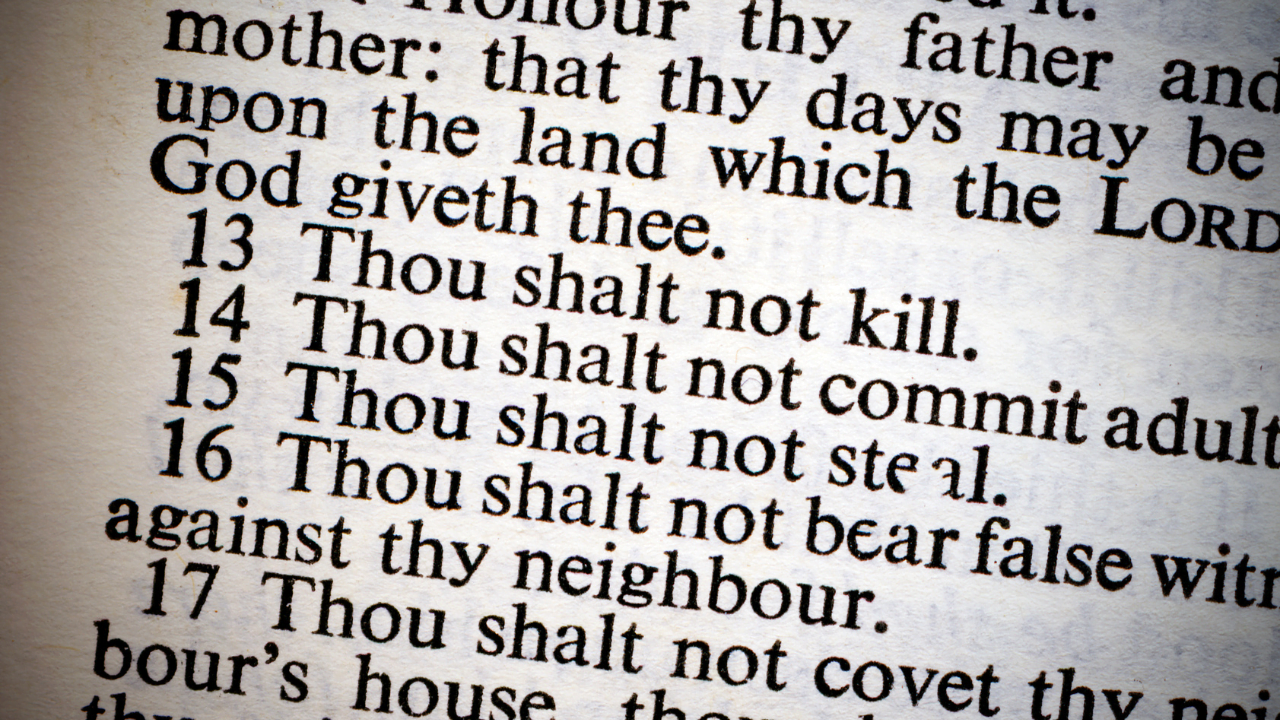No products in the cart.
The Role of Women in the Church: A Controversial Perspective
This post contains affiliate links.
One of the most controversial topics in the realm of church discussions is the role of women. Throughout history, the role of women in the church has been a subject of debate and disagreement among theologians, religious leaders, and believers. While some religious traditions embrace gender equality and acknowledge the significant contributions of women, others maintain more traditional interpretations that limit their involvement in certain areas.
It is important to recognize that different denominations and religious communities have varying perspectives on this issue. Some churches advocate for the full inclusion of women in all aspects of church life, including leadership positions and ordination. They argue that gender should not hinder one’s ability to serve and lead within the church.
On the other hand, some hold a more restrictive view based on theological interpretations that emphasize gender roles and distinctions. They argue that men and women have different but complementary roles within the church, with men typically holding authority positions and women primarily focused on supportive roles.
Advocates for gender equality often highlight examples from the Bible where women played significant roles in the early church. They point to figures like Phoebe, Priscilla, and Junia, acknowledged as leaders and even apostles in the New Testament. They argue that these examples demonstrate that women were active participants in the early Christian communities and should be afforded the same opportunities in the present day.
However, those who maintain a more traditional perspective often cite biblical passages that support male leadership within the church. These passages, such as the writings of Paul in the New Testament, are interpreted as instructing women to submit to male authority and refrain from certain leadership positions.
The debate surrounding the role of women in the church extends beyond theological interpretations and scriptural arguments. It also touches on societal and cultural factors influencing our understanding of gender roles. As societies have progressed and embraced gender equality, some religious groups have adapted their views on women’s roles within the church. Others, however, continue to hold on to more conservative interpretations.
The role of women in the church remains a controversial and complex subject. Religious communities and individuals hold diverse perspectives on this issue, ranging from full inclusion to more traditional interpretations. The debate involves theological, scriptural, and societal considerations, making it an ongoing topic of discussion within the religious community.
Addressing Same-Sex Marriage Within Church Communities
Same-sex marriage is a controversial topic that has sparked intense debate and discussion within church communities. As society becomes more accepting and inclusive of LGBTQ+ individuals, churches are faced with the challenge of reconciling their traditional beliefs with the desire to be welcoming and affirming.
For some church communities, the issue of same-sex marriage is seen as a matter of biblical interpretation. They adhere to a literal reading of scripture that views marriage as solely between a man and a woman. These churches argue that changing the definition of marriage goes against their religious teachings and fundamental beliefs.
On the other hand, some churches take a more progressive stance on same-sex marriage. They believe in inclusion and acceptance, regardless of sexual orientation. These churches argue that love and commitment should be celebrated, regardless of the gender of the individuals involved. They often highlight the principles of love, compassion, and equality central to their interpretation of Christianity.
Within church communities, the controversy surrounding same-sex marriage has led to internal divisions and conflicts. Some congregants feel marginalized and excluded, while others feel that their religious freedoms are being compromised. This has prompted many churches to address these tensions in deep theological and ethical discussions.
Many churches have implemented various approaches to navigate this controversial topic. Some churches have chosen to adopt a welcoming and affirming stance, openly embracing same-sex couples and performing same-sex marriages. These churches often cite the importance of love and inclusivity and strive to create spaces where all individuals feel valued and accepted.
Other churches have taken a more traditional approach, maintaining their beliefs about marriage while seeking to foster a welcoming environment for LGBTQ+ individuals. They may not perform same-sex marriages but still offer support and care to all members of their community, regardless of sexual orientation.
It is important to note that the views on same-sex marriage within church communities are varied and diverse. While there is ongoing debate, it is clear that the issue will continue to be discussed and reevaluated as societal attitudes evolve.
Addressing same-sex marriage within church communities is a complex and controversial topic. Churches grapple with reconciling their traditional beliefs with the desire to be inclusive and affirming. The approaches taken by different churches vary widely, reflecting the diversity of opinions on this matter. As society continues to evolve, the conversation surrounding same-sex marriage within church communities will likely continue to evolve as well.
The Tax Exempt Status of Churches: Should it be Reexamined?
The tax-exempt status granted to churches has long been controversial and debated. As religious institutions, churches in many countries are granted exemption from paying certain taxes due to their status as non-profit organizations. While this exemption is intended to support religious freedom and the separation of church and state, some argue it is an outdated and unfair privilege that should be re-examined.
Proponents of maintaining the tax-exempt status for churches argue that it allows them to fulfill their role as providers of spiritual and social services without the burden of financial obligations. Churches often play a vital role in their communities, offering support and assistance to those in need through various outreach programs, counseling services, and charitable endeavors. Removing their tax-exempt status could limit their ability to carry out these important functions.
Additionally, supporters of the tax-exempt status contend that churches are already subject to certain limitations and regulations. The Internal Revenue Service (IRS) restricts political activity for tax-exempt organizations, including churches. They are prohibited from endorsing political candidates or engaging in partisan activities. This safeguards against potential misuse of their exempt status and ensures that churches remain focused on their core mission.
However, critics of the tax-exempt status argue that it creates an unequal playing field and unfair advantage to religious organizations. They contend that exempting churches from certain taxes places an additional burden on taxpayers who must cover the revenue shortfall. This argument is particularly relevant in cases where churches amass significant wealth or engage in commercial activities unrelated to their religious mission.
Another perspective stems from the belief that the tax exemption for churches blurs the line between church and state. Critics argue that granting special privileges to religious institutions undermines the principle of a secular government. They contend that the government should not be in the business of subsidizing religious organizations.
While the discussion surrounding the tax-exempt status of churches is complex and multifaceted, it is clear that there are valid arguments on both sides. Those in favor of maintaining the exemption stress the importance of supporting the vital services provided by religious institutions, while critics highlight concerns about fairness and the potential erosion of the separation between church and state. Ultimately, the decision on whether to reexamine the tax-exempt status of churches will likely require a careful balancing of these competing viewpoints.
The Controversy of Inclusivity: Welcoming LGBTQ+ Members in Worship
When it comes to the issue of LGBTQ+ inclusion within church communities, there is no denying that it remains a highly controversial and hotly debated topic. Different denominations and faith traditions hold varying opinions, leading to significant religious divisions. While some churches have embraced and welcomed LGBTQ+ individuals with open arms, others still uphold traditional interpretations of scripture that condemn same-sex relationships. This ongoing debate raises questions about the essence of love, acceptance, and the church’s role in contemporary society.
For those who advocate for the full inclusion of LGBTQ+ individuals in worship, the focus is on love and acceptance. They argue that the central message of Christianity is one of love, compassion, and inclusion, irrespective of an individual’s sexual orientation or gender identity. They believe God’s love extends to all people, regardless of who they are or whom they love. In this view, the church should be a haven where everyone, including LGBTQ+ individuals, can find solace, support, and spiritual nourishment.
On the other hand, those who oppose LGBTQ+ inclusion often do so based on their interpretation of religious texts and teachings. They believe that the Bible clearly defines marriage as a union between one man and one woman, and any deviation from this is seen as contradictory to scripture. For them, maintaining traditional beliefs and moral values forms the foundation of their faith, and compromising on these principles would undermine the integrity of their religious convictions.
It is essential to acknowledge that this debate is not unique to the LGBTQ+ community; it is reminiscent of historical struggles faced by marginalized groups within the church throughout history. Over time, the church has grappled with race, gender equality, and other social justice concerns. As society evolves, so too does the perspective of the church. Inclusivity becomes an important conversation in defining the essence and mission of the church in contemporary times.
Regardless of one’s personal beliefs, it is crucial to approach this debate with empathy, respect, and a genuine desire to understand different viewpoints. The complexity of this issue calls for open and honest dialogue, acknowledging that diverse interpretations of scripture exist and recognizing that love, compassion, and acceptance should always be at the core of the church’s teachings.
The controversy surrounding LGBTQ+ inclusion in worship communities persists, with various beliefs and interpretations. While some advocate for a fully inclusive approach, others maintain traditional scripture-based viewpoints. Regardless of where individuals stand on this issue, engaging in respectful and compassionate dialogue that allows for a greater understanding of one another’s perspectives is vital. Ultimately, the church must seek to remain relevant in a rapidly changing world while staying true to its core values of love, acceptance, and the pursuit of justice for all.
The Controversy of the Church’s Stance on Contraception and Reproductive Rights
One of the most controversial topics within the realm of church teachings pertains to contraception and reproductive rights. The church has long held a particular stance on these matters, drawing support and criticism from various individuals and groups. While some religious institutions advocate for the use of natural family planning methods and emphasize the importance of procreation, others are more accepting of modern contraception methods. This debate highlights the ongoing tension between religious doctrine and personal autonomy.
Traditional views on contraception and reproductive rights can be traced back to religious interpretations that prioritize the sanctity of life and the purpose of sex for procreation. Many religious individuals argue that contraception interferes with the natural order of creation and undermines the divine purpose of human sexuality. They believe that engaging in sexual relations without the intent to conceive goes against the will of God and the sacredness of life itself.
However, opposing views argue that contraception is a matter of personal choice and responsibility. They believe reproductive rights are essential for individuals to make informed decisions about their bodies, family planning, and overall well-being. Advocates for contraception highlight the positive impact it can have on reducing unintended pregnancies, preventing the spread of sexually transmitted infections, and promoting economic stability for families.
The controversy surrounding the church’s stance on contraception and reproductive rights is not limited to disagreements among religious adherents. The broader societal debate brings into question the role of religious institutions in influencing public policy and healthcare decisions. Many argue that religious beliefs should not dictate the available choices and rights of individuals, particularly in secular societies.
It is important to note that not all religious institutions hold uncompromising positions on contraception and reproductive rights. Some denominations have adapted their teachings to incorporate a broader range of perspectives, acknowledging the complexities of contemporary issues. For example, some churches encourage responsible and informed decision-making regarding contraception while still upholding the values of family and procreation.
The ongoing controversy surrounding the church’s stance on contraception and reproductive rights reflects the broader societal debate on balancing personal beliefs, religious teachings, and individual autonomy. It is a multifaceted issue with no easy resolution. As society continues to evolve, conversations surrounding reproductive rights will continue to challenge the traditional views held by some religious institutions.
Conclusion
The controversial nature of these church topics reflects the ongoing struggle within society and religious communities to reconcile traditional beliefs and values with the evolving social landscape. The role of women in the church is a subject that has garnered much debate and discussion, highlighting the desire for a more inclusive and egalitarian approach to leadership and service.
Similarly, the issue of same-sex marriage within church communities has sparked intense controversy, with proponents of both sides arguing passionately for their beliefs. Churches need to engage in thoughtful and respectful dialogue to find a path to express love, acceptance, and inclusion while honoring deeply held religious convictions.
Another contentious subject is the tax-exempt status of churches, which raises questions about the separation of church and state and the proper use of financial resources. Advocates for reexamination argue that churches should be held to the same financial accountability as other non-profit organizations. At the same time, opponents emphasize churches’ positive contributions to society through charitable works and community outreach.
Regarding inclusivity, the debate surrounding welcoming LGBTQ+ members in worship centers on the interpretation and application of religious teachings. Supporters argue for a more accepting and affirming environment, upholding the principles of love and equality for all individuals. Detractors, however, assert that certain religious doctrines and beliefs prohibit embracing LGBTQ+ lifestyles, leading to complex and sensitive discussions.
The church’s stance on contraception and reproductive rights has generated controversy, as differing theological perspectives clash with societal norms and individual autonomy. While some religious institutions advocate for the traditional belief in procreation and the sanctity of life from conception, others acknowledge the complex realities of family planning and recognize the value of responsible choices concerning family size and reproductive health.
Individuals and communities must approach discussions with respect, empathy, and humility in navigating these controversial church topics. Open dialogue allows for exploring differing perspectives, sharing personal experiences, and the opportunity for growth and understanding. While disagreements may persist, it is through compassionate engagement that bridges can be built and common ground can be found.
Ultimately, these controversial church topics serve as reminders of the underlying tensions between tradition and progress, doctrine and personal conviction, and societal expectations and religious beliefs.
By acknowledging these subjects’ complexities and engaging in thoughtful conversations, religious communities can strive towards inclusivity, compassion, and a deeper understanding of our shared humanity.
This post contains affiliate links.










